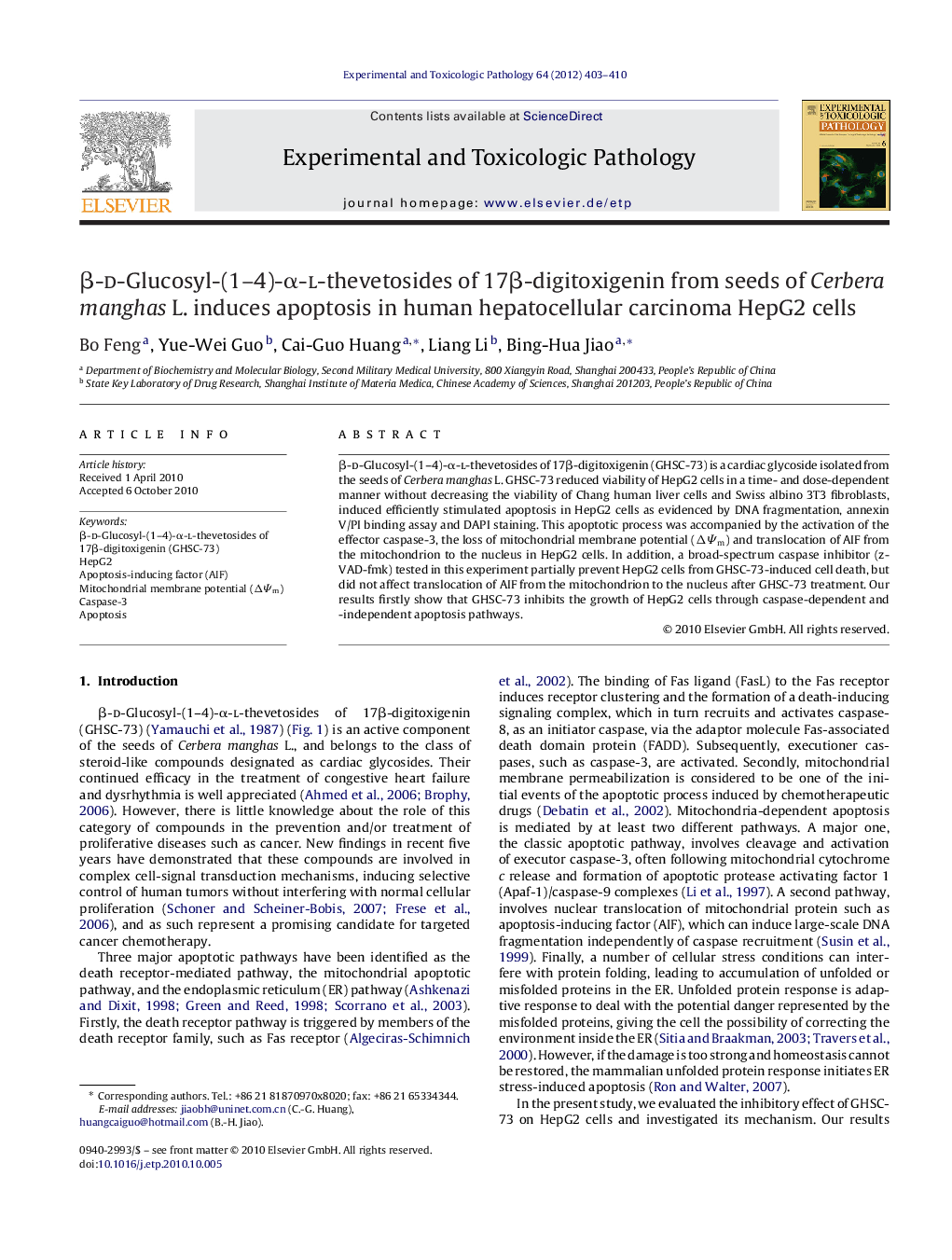| Article ID | Journal | Published Year | Pages | File Type |
|---|---|---|---|---|
| 2499043 | Experimental and Toxicologic Pathology | 2012 | 8 Pages |
β-d-Glucosyl-(1–4)-α-l-thevetosides of 17β-digitoxigenin (GHSC-73) is a cardiac glycoside isolated from the seeds of Cerbera manghas L. GHSC-73 reduced viability of HepG2 cells in a time- and dose-dependent manner without decreasing the viability of Chang human liver cells and Swiss albino 3T3 fibroblasts, induced efficiently stimulated apoptosis in HepG2 cells as evidenced by DNA fragmentation, annexin V/PI binding assay and DAPI staining. This apoptotic process was accompanied by the activation of the effector caspase-3, the loss of mitochondrial membrane potential (ΔΨm) and translocation of AIF from the mitochondrion to the nucleus in HepG2 cells. In addition, a broad-spectrum caspase inhibitor (z-VAD-fmk) tested in this experiment partially prevent HepG2 cells from GHSC-73-induced cell death, but did not affect translocation of AIF from the mitochondrion to the nucleus after GHSC-73 treatment. Our results firstly show that GHSC-73 inhibits the growth of HepG2 cells through caspase-dependent and -independent apoptosis pathways.
